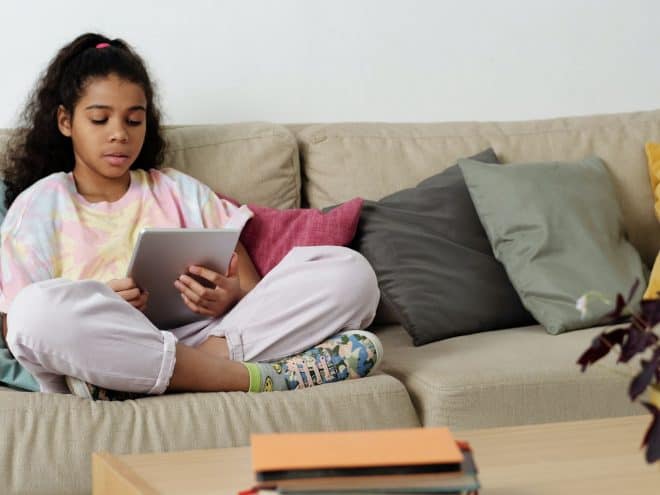Whether you already have teens who are on social media day in and day out, or you’re considering allowing your kids to have their very first social media accounts, you may be a bit concerned about the effects that social media can have on your kids in the long run. While people have all different opinions on the impact of social media on people of all ages, social media is a relatively new fixture in the modern world, and it’s better to be safe than sorry, especially when it comes to your kids.
Even if you allow your kids to use social media with reasonable limits, it’s important to stay aware of the ways that social media use can impact your teens and their health, especially with the addictive nature of many social media platforms. You’re responsible for protecting your kids and helping them form good habits to take forward into adulthood, and that goes for on the screen and off. Here are just some of the ways that social media affects teens.
Attention Span and Constant Stimuli
While there’s been a running cultural narrative that social media shortens attention spans and makes it harder to cope when unoccupied, there actually is research to support that attention spans have gotten shorter along with social media use. The average attention span is now eight seconds — as compared to the 12-second attention span from before the turn of the century. People often describe an inability to be bored or to exist without the stimuli of a phone, which is concerning, especially for young kids.
Lowered Self Esteem
This is an impact that many people of all ages report when it comes to constant social media use, and when it comes to impressionable teenagers, it’s important to be even more careful with their self esteem. Teenage years are a fragile time, and constantly seeing other people to compare to — from celebrities to peers — can damage and lower self esteem.
Depression and Anxiety
Unfortunately, constant social media use can also cause anxiety and depression in people of all ages, particularly teenagers. In fact, teenage and young adult users who spend the most time on Instagram, Facebook and other platforms were shown to have anywhere from 13-66% higher rates of reported depression than those who spent the least time on social media platforms. This can be caused by a number of factors related to the nature of social platforms, but the research shows that overall, it is something to be concerned about.
Altered Communication Norms
It’s no secret that communication has changed over the years — even with the use of tools like texting and video chat. However, social media has the potential to impact the way that teens perceive and practice communication with friends and loved ones, causing social and interpersonal issues in the long term. Even though texting and instant messaging can be great tools, it’s also important to teach your kids to utilize and familiarize themselves with in-person communication and phone calls, as those are important tools for communication in the wider world.
Depersonalization
Along with the segmented communication patterns that can come from a reliance on social media, constant social media use can also cause a sense of depersonalization with those around you, which can be detrimental in developmental years. It’s important to feel a connection with others, and social media doesn’t tend to foster real connections and relationships that function the same way real friendships and relationships do.
Unhealthy Sleeping Patterns
While mental health and emotional well-being are some of the primary focuses of those concerned about teens on social media, physical health shouldn’t be forgotten. Not only can extensive screen time impact the circadian rhythms and sleep patterns, but social media addiction can often alter the sense of time, leaving hours to pass without much thought. Teens who use social media without limits often stay up long past midnight, losing valuable sleep that their growing brains need. And these habits last — approximately 21% of adults say that they wake up to check their phone during the night.
Eye Damage
Another note on physical health — screens aren’t good for anyone’s eyes, especially when it comes to prolonged exposure and constant scrolling. When teens spend hours each day on their phones, either for social media or doing other activities, they can damage their eyes. Due to this, it can be smart to put limits on all screen time.
How Social Media Affects Teens
Even though teens themselves don’t always like to admit it, they’re still kids. They’re still growing and forming their habits, and as their parent, it’s your job to help them form the ones that will be the best for their physical, mental and emotional health. Whether or not you choose to allow your child on social media, doing your research and becoming informed is the first step in creating a system that works for your family.





